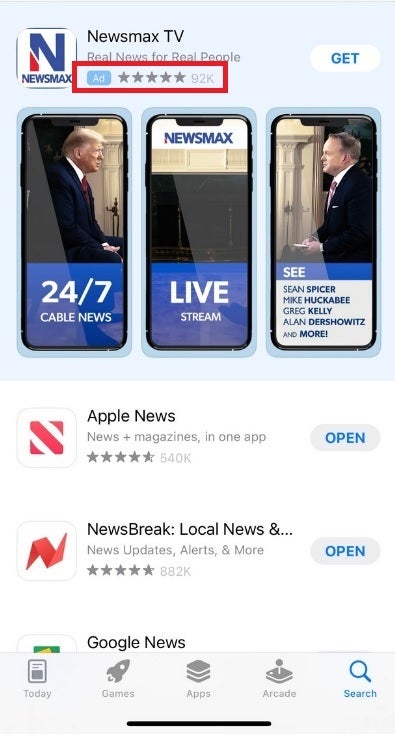Apple’s push into services allowed it to collect more personal data from users

A contextual ad appears on this App Store search result for news apps
In 2017, concerned that iPhone sales had peaked, Apple created a goal to strive for. It wanted to double the revenue generated by its Services division from $25 billion to $50 billion by 2020. It was a brilliant move since it wasn’t a revenue generator that would require Apple to keep selling more handsets; instead, it relied on owners of the then-active 728 million iPhone units (a figure that is now over 1 billion) to subscribe to more Apple services that charge recurring payments.
This includes the obvious items such as your name, email address, payment information, and your Apple ID. That data comes from you. But Apple also gathers the names of the apps you use, searches you’ve made inside the App Store, and information about the device you’re using. Some data can only be collected with your permission such as your location data, health information, and fitness information.
However, Apple, like Google and other tech firms, uses “Dark Patterns” to get you to reveal that data. This refers to a method used by companies to get users to reveal information through deceptive means. For example, on some apps where your permission is needed for Apple to gather your location data, it writes, “You are not required to provide the personal data that we have requested. However, if you choose not to do so, in many cases we will not be able to provide you with our products or services or respond to requests you may have” even though in most cases this info is not really required.
As a monopoly with 600 million weekly users, the App Store is a desirable location for advertisers
Apple, for its part, processes some information locally on its phones rather than having the data sent to company servers. Apple Maps, which does need the user’s location, device model, software version, and past search terms, uses an “identifier that rotates multiple times per hour.” This identifier isn’t linked to your Apple ID and while Apple says that it makes it harder to identify you, figuring out your identity is not an impossibility. “Because your location can give away your identity, we convert precise locations to less-exact locations within 24 hours,” Apple notes.




